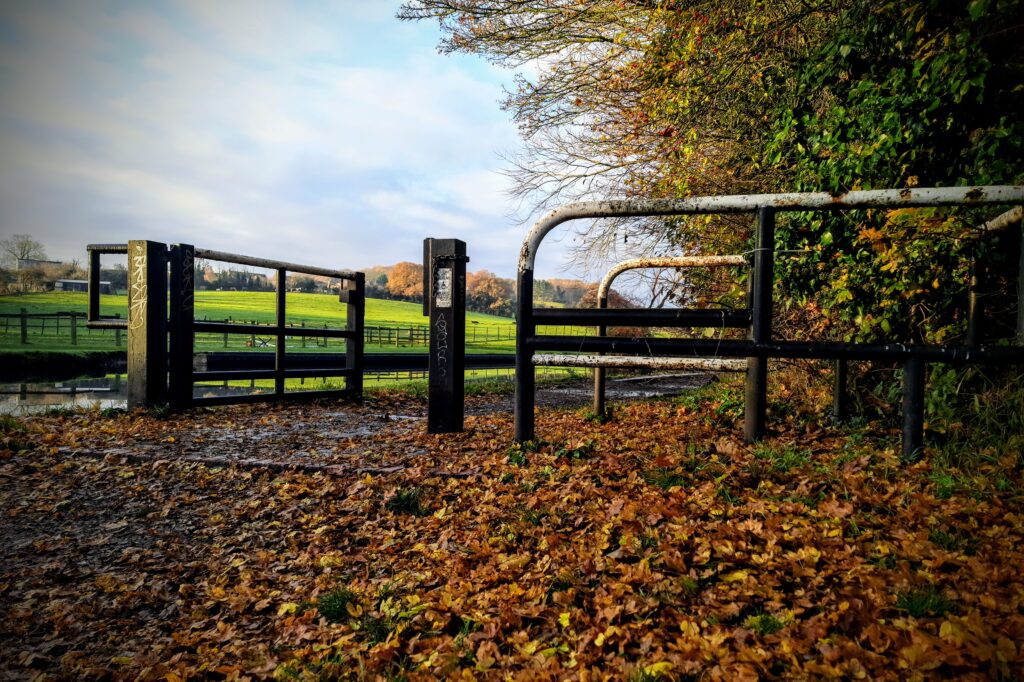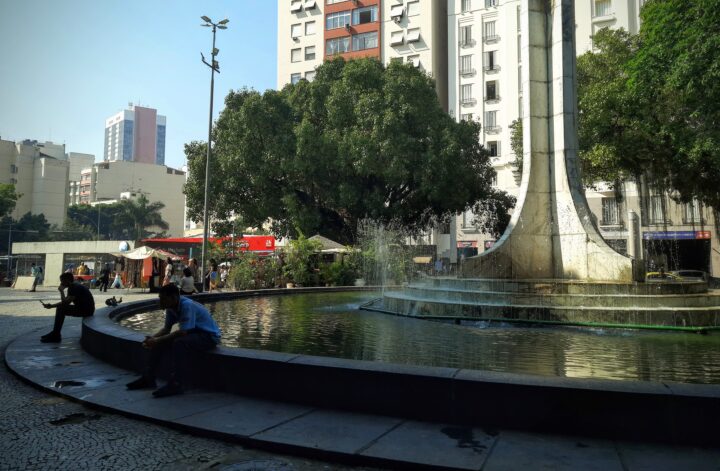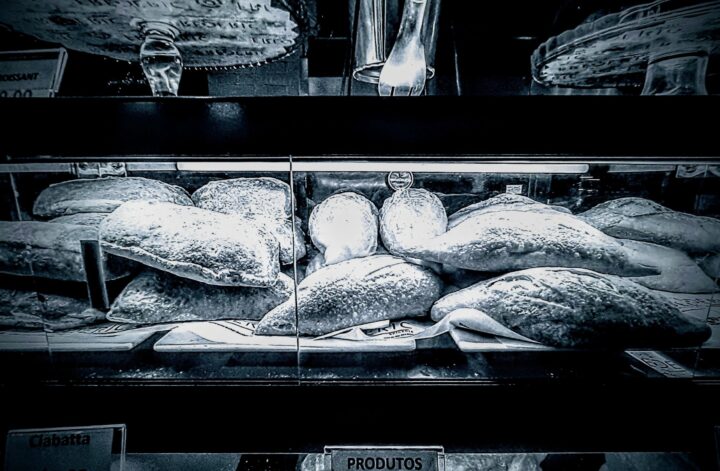Wordsley, Stourbridge, England: 3 degrees, cold, sunny and slightly overcast.
I’ve spent almost a week in England, including four working days of giving classes here despite the below-zero temperatures outside.
Another night of sleeping badly. I think I got up at least 20 times to go to the toilet. For some reason, I couldn’t get off to sleep. I only managed a couple of hours of sleep when it was almost time to get up.
When I got up, I washed my face, brushed my teeth, and went downstairs to the front living room. The back living room is more formal, an extension of the house. My mother has nicely decorated both the front and back living rooms with old antique ornaments. I think the whole house is a shrine to the family in the past.
Even though she has had limited contact with me, my brother, and the grandchildren over the years, there are photos of special family occasions, ornaments, souvenirs, memorabilia and even things from our childhood in our old house in Wollaston, where we grew up for most of our childhood lives.
There are photos of Jessica’s and Charlotte’s christenings. Over 50 years ago, my father made clay figures and animals from pottery classes, and they were there. Some of our old toys, metal cars, etc., which were broken then and are still broken, but my mother has kept them all this time.
There are a plethora of small things everywhere in the house—lots and lots of small things littered everywhere. Crockery on the chest of drawers, on the walls, on the backsplash in the kitchen—many tiny things everywhere, which tells you a lot about a person’s confused mind.
When I was married to Nalva, we often argued, and in moments of anger, I would say that I felt like I was married to my mother, as both were quite similar and difficult to deal with. Perhaps I wasn’t just speaking out of anger; there was some truth to it.
Both tend to hoard many little things instead of throwing them away or giving them to others. They seem caught in a mindset where they believe they might need these items in the future, so they must be kept. This reflects a kind of “just in case” syndrome: the belief that we must keep things in case we need them in the future.
I also think that this mindset gives a person a sense of security. Having lots of belongings around can make someone feel stronger and more secure. This is evident in homeless individuals who wander the streets carrying bags of items, even though they have nowhere to store them. I’m trying to convey that seeking security through collecting—or, in some cases, hoarding—seems to be a part of human nature.
Even millionaires and billionaires, who are economically powerful and don’t need to prove anything to anyone, often have large car or watch collections. Yet, they can only drive one car and wear one watch at a time.
After the exercise, it took me a long time to get ready because I needed to wear many layers of clothing to go out in the cold, which was impressive but also a lot of work. Once I finally made it outside, the weather was slightly sunny with a few clouds and, thankfully, no threat of rain.
I walked down my mother’s street, turned right down the main parallel street that leads to the park, and entered the park that faces the canal. I took some photos of some beautiful trees in the park and continued until I reached the canal. There is an open basin where three canals meet.
It is a central meeting place for the Swans and ducks. As I approached the base, the Swans and ducks saw me coming, and as I opened my pump bag to pull out their food, they all came quickly over at warp speed. There were at least ten or more of them, happily eating, and one or two jumped onto the path to be closer; it was a party. I wanted to put some food in my hand to see if they would take it, but I bottled out at the last moment. The next time, I’ll do it.
Am I a man or a mouse?
After they finished the food, I made a round trip, walking along the canal for more than two kilometres. On the way home, I stopped in the local cafe for a cup of tea for £1.50—too cheap!
When I got home, I started my classes. Between the first and second classes of the day, I received a delightful surprise: Yasmin had replied to a message I had sent her two days earlier. I think she is testing me and the situation. As an adolescent, her behaviour is somewhat understandable; however, it requires a lot of patience.
I took the opportunity to send her a message asking if she was at school and if everything was okay. She replied that she wasn’t, so I called her on WhatsApp, and we talked for a long time. This was the first time in a while that we had such a good conversation.
Before leaving England, she was upset with me for months because I encouraged her to participate in sports or exercise. My requests led her to declare war on me until I departed for England. I believe one reason I am having trouble sleeping is my ongoing concern for her.
We talked for over 15 minutes. I asked her about school, her grades, what she was doing, and her drawings. I also sent her a video of me feeding the swans and ducks. She was touched to learn that the letter she had sent through me to her grandmother—one that I translated—was very much appreciated. Her grandmother had displayed the letter above the fireplace in the back living room as if it were a masterpiece at the centre of the room.
I told her that I loved her and that she was very important to me, no matter what. She promptly replied, reciprocating. In that moment, we made peace, and everything felt good. After saying our goodbyes and hanging up, I felt relieved, as if my soul had been washed clean and dry in the sun. A weight had been lifted off my shoulders, and now I could work properly.
Everything is good again!
I gave classes and worked as usual for the rest of the day. My mother had left a steak for lunch; all I needed to do was place it under the grill, turning it over every couple of minutes. In Brazil, we don’t have grills like they do in England. Typically, a cooktop or regular stove in England features a grill. Grilling, as they do in England, is not common in Brazil.
Perhaps such features are found on more advanced and costly imported kitchens, but I have never seen one in Brazil. I had forgotten entirely about grills and their usefulness for quickly cooking meats, fish, or anything else without creating a mess. It seems that the way we use grills in England is similar to how frying pans are used in Brazil.
The vegetables and gravy were already on the plate from the day before. It was simply a matter of grilling the steak and, when it was ready, heating the plate with the vegetables and gravy for two minutes in the microwave.
The steak was surprisingly good for English standards. After living in Brazil for so long, you know what a good or not-so-good steak is, but this was much better than I had expected.
So, what a day!
Feeding the birds is so nice, and a walk along the canal is sublime. I made money from classes, took some really good photos, and made peace with my youngest daughter, so for me, everything is good. And to finish everything off, I had a good steak in the evening.
In bed by 10:30 p.m. GMT.
Thank you.
Thanks for reading this blog post. Please explore my other posts and share your thoughts in the comments section.
Richard










